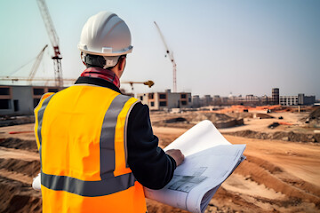Fostering Resilience: Structural Engineers in NJ and Adherence to NJDEP Permit Compliance Amid Climate Change
With the escalating impacts of climate change, marked
by more frequent and severe weather events, the imperative of resilience
engineering stands paramount. In New Jersey, structural engineers assume a
pivotal role in crafting and retrofitting structures to withstand the
challenges posed by climate change, all while ensuring compliance with NJDEP
permit regulations.
The responsibilities of Structural engineer NJ entail
the crucial task of designing buildings and infrastructure capable of enduring
the escalating threats linked with climate change. From the encroachment of
rising sea levels and coastal erosion to the intensification of storms and
flooding, these professionals must factor in a diverse array of considerations
when devising resilient structures. This involves the utilization of advanced
modeling techniques, such as finite element analysis and computational fluid
dynamics, to simulate the impacts of extreme weather events and evaluate
structural vulnerabilities.
Concurrently, NJDEP
permit compliance introduces an additional layer of
intricacy to resilience engineering endeavors. Conforming to NJDEP regulations
is indispensable to ensure that structures not only exhibit resilience but also
uphold environmental stewardship. This necessitates adherence to guidelines
pertaining to air and water quality, hazardous waste management, and land use
planning, among others. Structural engineers must adeptly navigate these
regulations, integrating principles of sustainability into their designs while
meeting permit prerequisites.
One avenue toward bolstering resilience in response to
climate change involves embracing nature-based solutions. Structural engineers
in NJ are progressively integrating green infrastructure elements, such as
vegetative roofs, permeable pavements, and rain gardens, into their designs to
alleviate flooding, enhance stormwater management, and fortify overall
resilience. These nature-based solutions not only mitigate climate-related
challenges but also contribute to fulfilling NJDEP permit compliance
objectives.
In conclusion, resilience engineering amid climate
change demands a collaborative, multidisciplinary approach that amalgamates the
expertise of structural engineers in NJ with the regulatory framework of NJDEP
permit compliance. By crafting resilient structures that meet environmental
standards, these professionals play a pivotal role in shielding communities and
infrastructure from the impacts of a shifting climate. As climate change
continues to present novel challenges, the partnership between structural
engineers and regulatory bodies will remain indispensable in cultivating a more
resilient future for New Jersey.
For more
information about NJDEP permit compliance come and
visit our website : https://www.lockatong.com/




Comments
Post a Comment